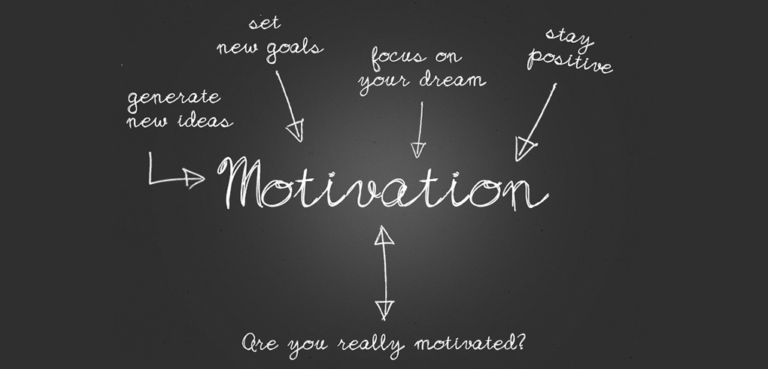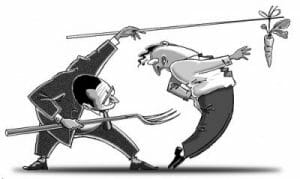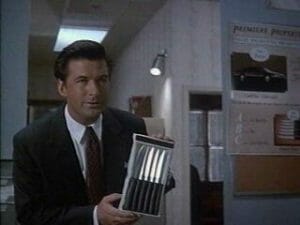Getting the most our of your sales reps is the goal of every manager. For some it comes more naturally, just like a good coach that knows the right levers to push and pull to turn a rag tag group into a championship caliber team. But for the rest of us, learning how to motivate sales reps is something that has to be worked on and honed over time.
With that said, having a good understanding of the what motivates us as humans and specifically as sales professionals can put you in a better position to get the most out of your team.
Its a common mystery of both experienced and new managers alike, “What is the best way to motivate our sales reps.”
In this post, let’s spend some time going through each type of motivation, I’ll throw in some research by people much smarter than myself and then sprinkle in some real life, actionable steps you can take today to start motivating your reps on several different levels.
The goal by the end of this post is to walk away knowing what has been scientifically proven method on how to motivate sales reps to perform at its highest level and discover what you may be doing that is actually DEMOTIVATING your team thus resulting in a performance drop.
Bottom line, its going to be an eye opening experience.
Proven methods on how to motivate sales reps
- Extrinsic Motivation – being motivated by external forces
- Intrinsic Motivation – the opposite of extrinsic motivation or being motivated by internal forces
The Carrot vs. The Stick Method
The most well know example of extrinsic motivation or simply how to motivate sales reps is The Carrot vs. The Stick or Reward vs. Punishment. Can you hold a reward in front of somebody and “pull” them to perform certain actions or “push” them with punishment from behind.
The Carrot Method for motivating sales reps
It would be easy to think that all sales people are motivated by money. After all, it is the sales person that typically risks a more stable salary to have some or all of their monetary compensation be based on performance. So the money is all it takes right?
Not so fast. There have been plenty of studies showing that money is not the main reason sales people remain at a job or perform at a high level.
A salesperson might initially take a job because of the “Carrot” or potential compensation but that won’t keep them at the job.
Dr. Linda Hill, Professor at Harvard Business School, believes that many inexperienced managers believe that money is the chief motivator of their staff.
If you are training your sales team to only work for the carrot then it must be increased again and again to have the similar effect. Economist Anton Suvorov said, “Rewards are addictive in that once offered, a contingent reward makes an agent expect it whenever a similar task is faced, which in turn compels that principle to use rewards over and over again.” (3)
You know that sales contest you are running this month where the person who gets 15 sales first wins $1,000, well according to research the reps are going to expect that mentally each time they get 15 sales in a month. So when they don’t because it’s a one time contest they are mentally demotivated.
Not only that but the Carrot method of rewards assumes that the sales rep isn’t working as hard as they can and it is going to take extra incentive to get them to actually do their job.
Compensation isn’t enough for lasting motivation for motivating sales reps
Compensation by its definition is Extrinsic motivation in that we are paid for what we do and in commissioned sales it is even more so because those that perform at a higher level will make more than those that don’t.
The commission model has been around for over 100 years and no doubt works but the model is incomplete in that Extrinsic motivation alone isn’t enough.
As a matter of fact, this type of motivation has been found to have a good short term effect that diminishes over time because once the reward was achieved, it no longer had the same motivating qualities.
As someone who has both managed salary + commission and commission only sales reps I can attest that compensation alone does not drive sales performance or motivation. I was BLOWN AWAY by some of the commission only sales people that couldn’t get their lazy butt out of bed in the morning to go and make sales calls knowing that they wouldn’t make a single $ unless they did. It never ceased to amaze me.
Have you had a similar experience motivating sales reps?
And then there are those other reps, the ones that are killers and can close deals and get the sell better than anybody. But sure enough, as soon as they made a certain amount of money in a month or quarter they pretty much shut down. Maybe it was $5k in a month or maybe it was $25k but there was a number that once it was hit there was no motivation left to keep pace, it was golf course or casino or you name it place where sales people like to spend money.
Nigel Nicholson, Professor of Organizational Behavior at London Business School, verified that “all available evidence suggest that external incentives – be they pep talks, wads of cash, or even the threat of unpleasant consequences – have limited impact.” (2)
The Stick Method for Motivating Sales Reps
Ah yes, the ol’ stick or inflicting punishment if performance isn’t where it needs to be. Aka a threat.
Similar to the Carrot, the Stick can produce short term motivation and results therefore it is often used by managers (4). Although they may not realize the negative effects this type of motivation has on a sales person whose performance can be highly impacted by their attitude and confidence.
Dr. Howard Leventhal of the University of Wisconsin has studied why some fear based appeals do not work. Leventhal’s research findings demonstrate that fear based communications ceased to be persuasive when the one being exposed to the fear was not shown how the fear could be avoided. (5)
There’s always a place for punishment in the workplace if the sales rep broke company policy but as an ongoing means of motivation it just won’t work.
4 Problems with the stick method which will prove difficult on how to motivate sales reps
- Reduces Sales Performance – Research by Bain & Company identified that when employees feel demotivated their productivity can diminish by a staggering 25% – 50%. (1)
- Can Physically Hurt Sales People – fear causes stress which does all sorts of nasty things to our bodies.
- Creates a Hostile Work Environment – want your team to hate you and despise working for you? Just keep motivating with fear and it’s sure to happen. You are creating feelings of disrespect where the employees will become defensive, resentful and will evade responsibility and the manager. (6)
- Promotes a Negative Mindset – nothing can kill a sales persons and teams momentum like negativity. So much so that as a manager controlling and eliminating negativity is a top priority.
Are you guilty? If so, don’t worry we’ll show you how to motivate sales reps the right way.
If you are guilty of using the carrot and/or the stick when managing a sales team don’t worry you are in good company because I too have resorted to those methods. Not because I knew they were the best or right thing to do but probably because they are nature and easier than finding out what really motivated the individual reps and then taking action to bring the best out of them.
We all grew up getting either the carrot, “if you finish your vegetables then you can have dessert” or the stick “if you paintball the neighbors car one more time I’m going to shove it right up your ass” so for a new manager, like I was, it’s easy to default to Extrinsic motivation. After all, how much fun are sales contests?
Now we know that using too much carrot or stick provides a fleeting motivational boost and may actually be deflating your team and causing under performance, mediocrity or high turnover.
What the heck are we supposed to do?
The inner drive to motivate sales reps
While there is a place in a sales managers repertoire for Extrinsic motivation such as the Carrot and the Stick science has proven that intrinsic motivation will get the highest productivity out of your sales team.
As a reminder Intrinsic Motivation is when someone is compelled to do something internally and not driven by external factors.
James Kouzes and Barry Posner, two respected leadership experts, show the difference of the two methods on how to motivate your sales reps, “People do things either because of external controls – the possibility of a tangible reward if they succeed or punishment if they don’t – or because of an internal desire. People do something because they feel forced, or because they want to… Which condition is more likely to produce extraordinary results? On this, the research is very clear. External motivation is more likely to create conditions of compliance or defiance; self motivation produces far superior results.” (7)
Since intrinsic motivation must come from within you have to make sure these type of people are on your team to begin with. You want those that are intrinsically motivated to win and blow past their goals and not just because if they do then you’ll give them a new set of steak knives but because they just can’t stand to not win or be at the top. They love competition, learning and improving their skills to be the absolute best they can be. I hope this article helps on how to motivate sales reps.
In their article called “What Makes a Good Salesman?,” David Mayer and Herbert Greenberg state that one of the two main factors is that they are Ego Driven. “His self-picture improves dramatically by virtue of conquest and diminishes with failure.”(8)
Think back to the top performing sales people that you have either worked with or have worked for you. The money is a result or scoreboard for their success. They are motivated to succeed because they have a large ego. want to be the best, like the adrenaline rush that comes with closing a huge deal or feel like they have something to prove. All the things I just listed are intrinsic motivation.
Supporting intrinsic motivation
After diving in to the research I think we can all agree that we’d rather manage somebody that was self motivated to be their best. So now that you have these types of reps on your team what can you do to support this type of motivation or even increase it?
Here’s a few ideas on how to motivate sales reps:
- Public Recognition – this is the biggest one for ego driven sales people. During your weekly meeting make sure point out those that are achieving.
- Give Credit Where its Due – if a sales rep is working hard and getting better or contributed to the companies success in other ways make sure and let them know you appreciate it.
- Sales Leaderboards – a little friendly competition can go a long way to bring out the best in intrinsically motivated sales people
- Setting Goals – set goals with your team so they are their goals
- Job Ownership – give responsibility or get input so the rep feels they have a meaningful impact on the success of the company and team
In conclusion
Extrinsic motivating factors such as the Carrot vs. the Stick can cause short term motivation for your sales reps but in the long run you will do more harm than good. Get the most out of your sales team by hiring intrinsically motivated reps and then bringing out their best by implementing the tactics above. This method has been proven its effectiveness time and time again on how to motivate sales reps.
Do you manage outside sales reps that you want to motivate?
SPOTIO has several features that will allow you to bring out the most of your intrinsically motivated sales team, from a Leaderboard to Daily & Weekly Reports. You’ll have the tools at your disposal to support intrinsic motivation. In other words, our door to door sales app will prove how to motivate outside sales reps along with increasing your sales bottom line.
For more great information on how to motivate sales reps read “The Science of Motivating Sales People” by the Hoffeld Group.
- F.F. Reichheld with T. Teal. “The Loyalty Effect: The Hidden Force Behind the Growth, Profits and Lasting Value.” (Boston: Harvard Business School Press, 1996). p. 1
- Nigel Nicholson. “How to Motivate Your Problem People.” Harvard Business Review, January, 2003.
- Anton Suvorov. “Addiction to Rewards,” presentation delivered at the European Winder Meeting of Econometric Society, October 25, 2003.
- Walter Nord. “Beyond the Teaching Machine: The Neglected Area of Operant Conditioning in the Theory and Practice of Management.” Organizational Behavior and Human Performance, vol. 4, 1969. p. 383
- H. Leventhal, R. Singer and S. Jones. “Effects of fear and specificity of recommendations upon attitudes and behavior.” Journal of Personality and Social Psychology, 2, 1965. p. 20 – 29.
- Jennifer George. “Emotions and Leadership: The Role of Emotional Intelligence.” Human Relations, vol. 53, no 8, 2000. p1027 – 1055.
- James M. Kouzes and Barry Z. Posner. The Leadership Challenge: Fourth Edition. (Hoboken, NJ: John Wiley & Sons Inc, 2007)
- David Mayer and Herbert Greenberg. “What Makes a Good Salesman?” Harvard Business Review, July – August, 2006.
______
Questions or comments? Contact SPOTIO at [email protected] or comment below.
SPOTIO is the best field sales automation and performance management software that will increase revenue, maximize profitability, and boost sales productivity.
Want to see a product demonstration? Click here to see how SPOTIO can take your sales game to the next level.







